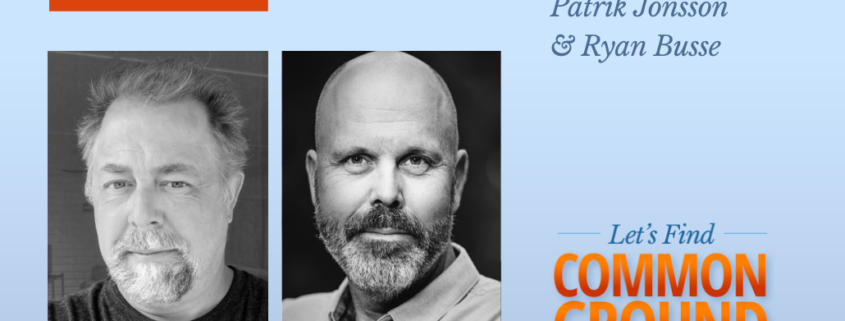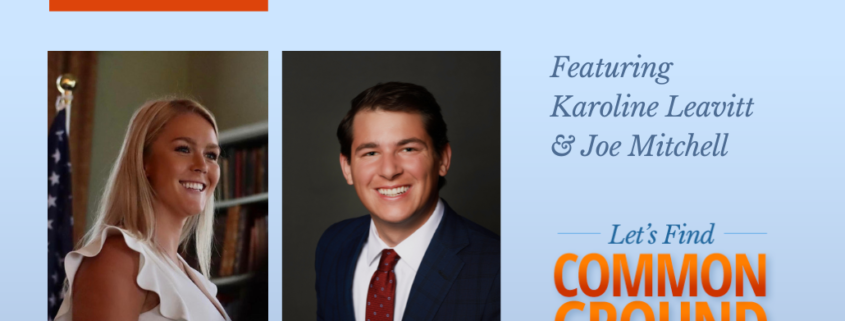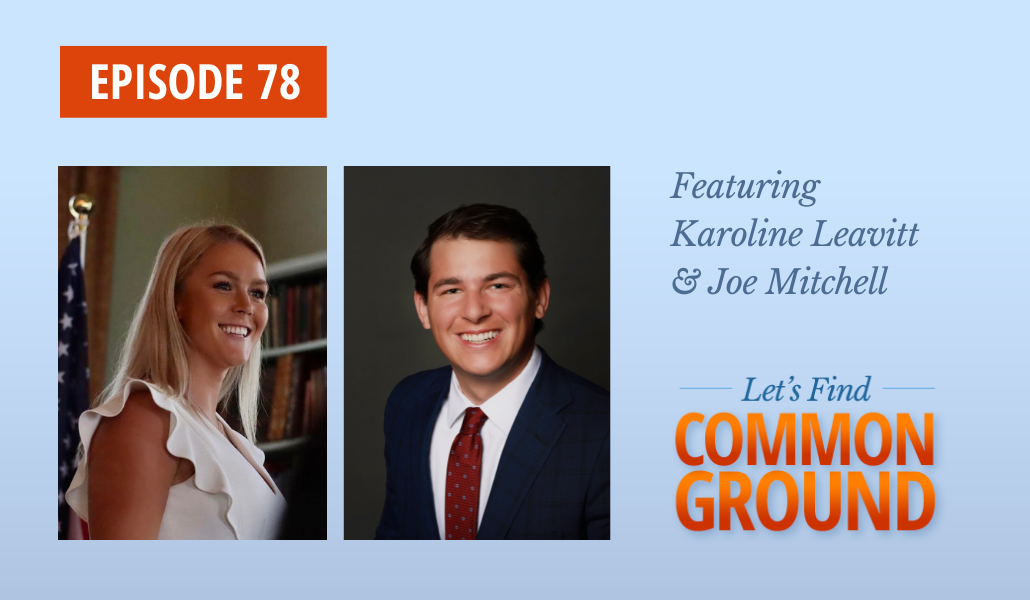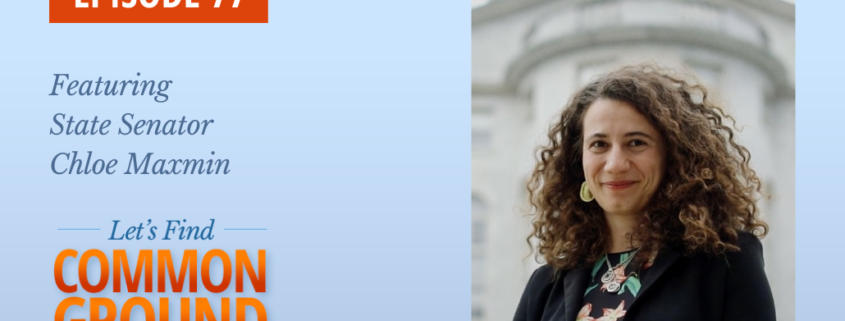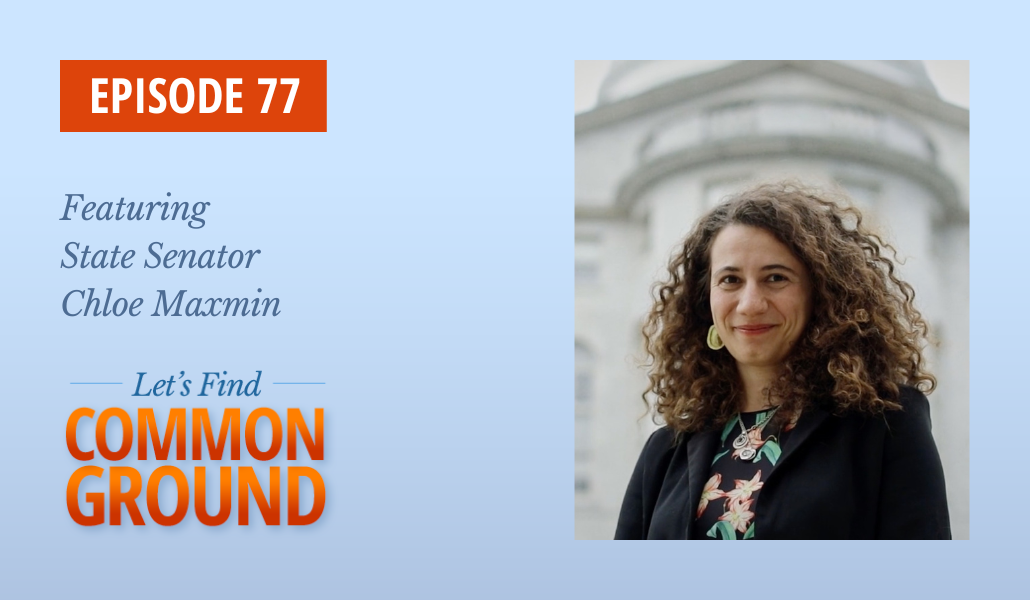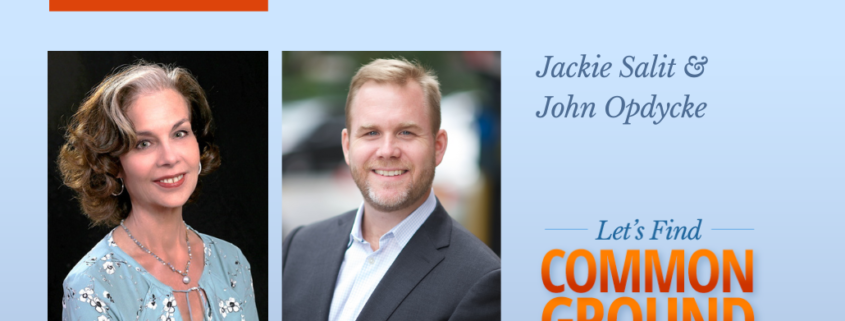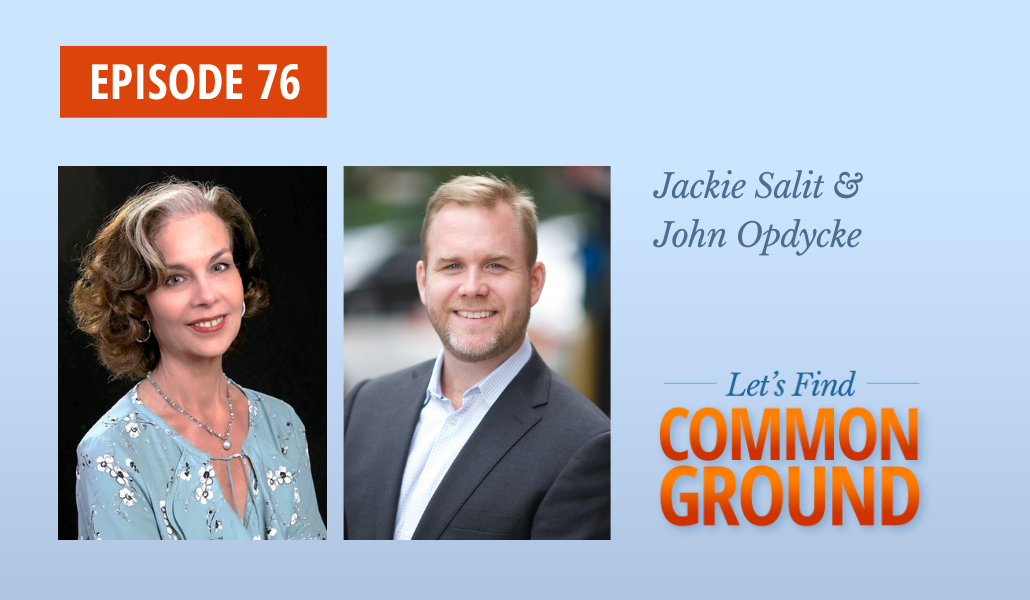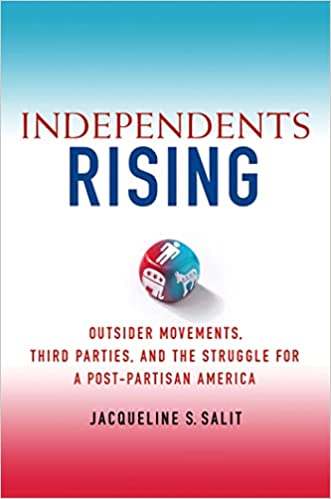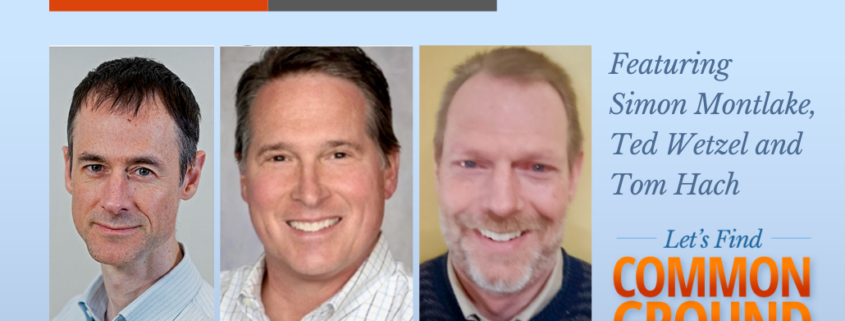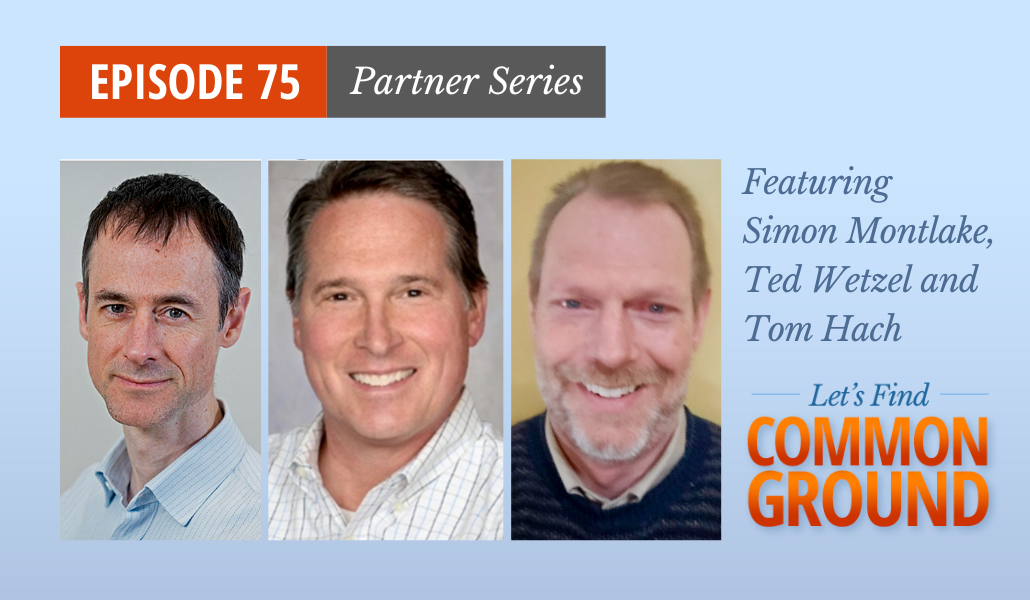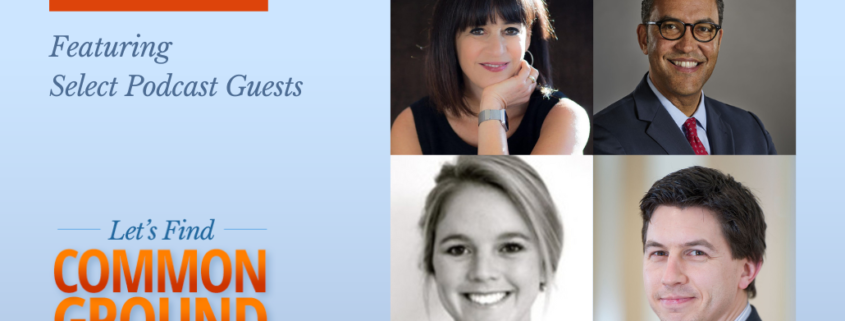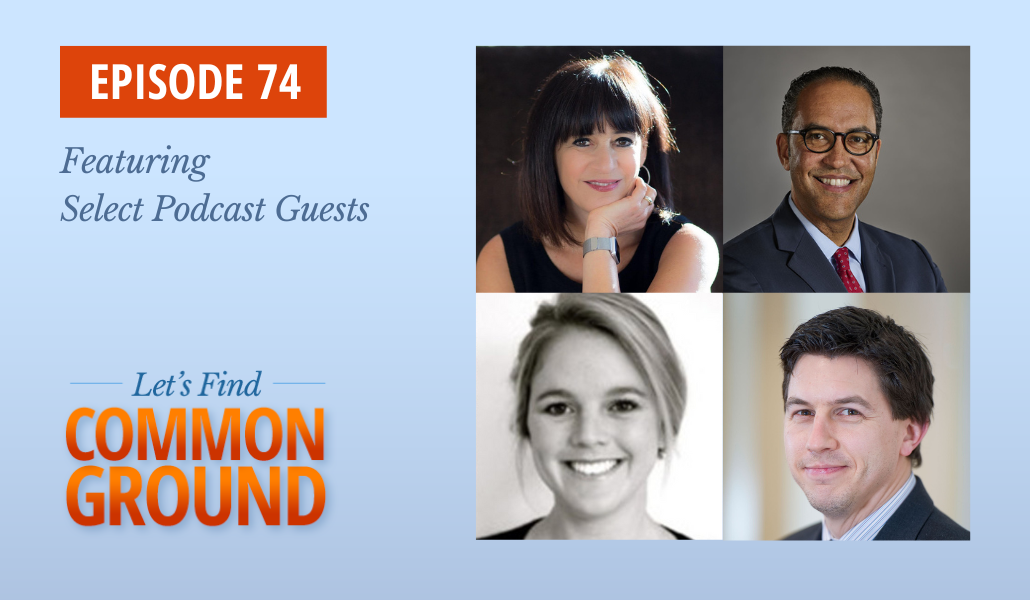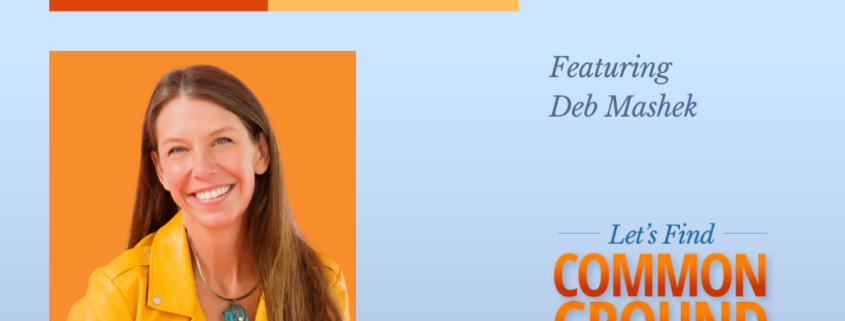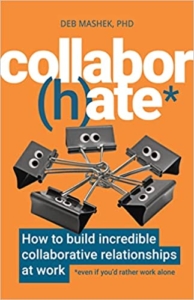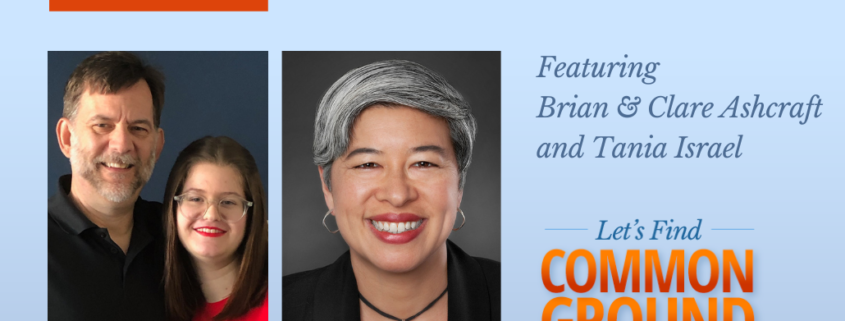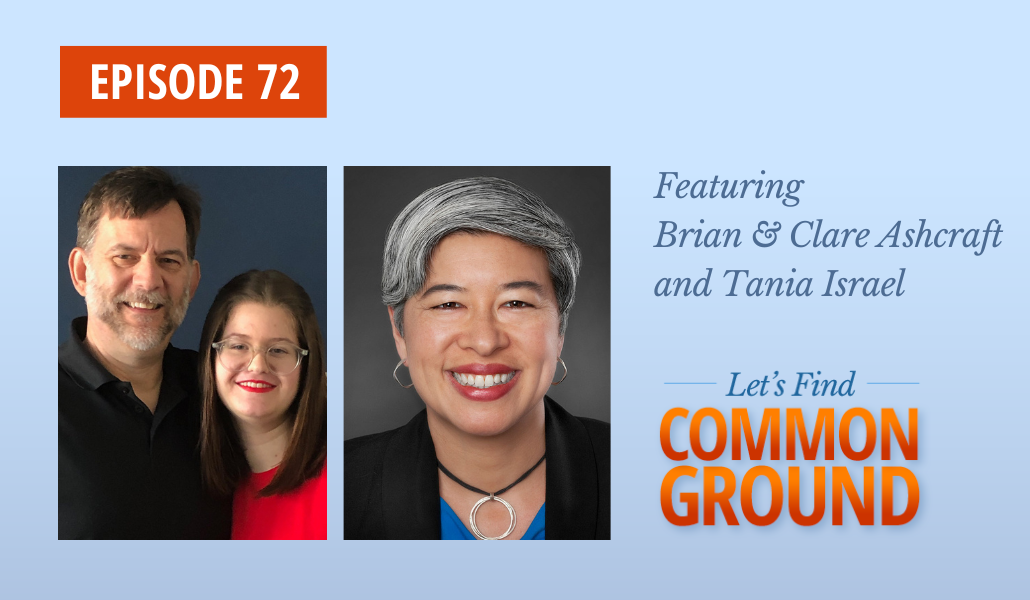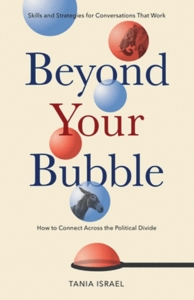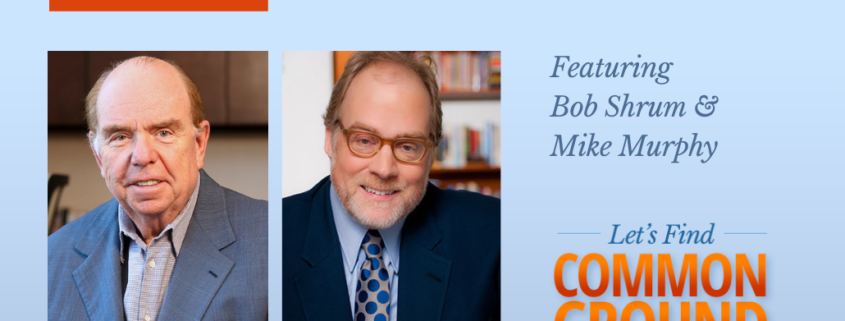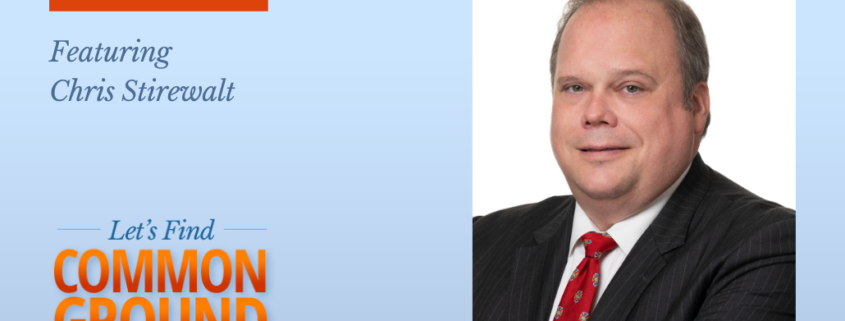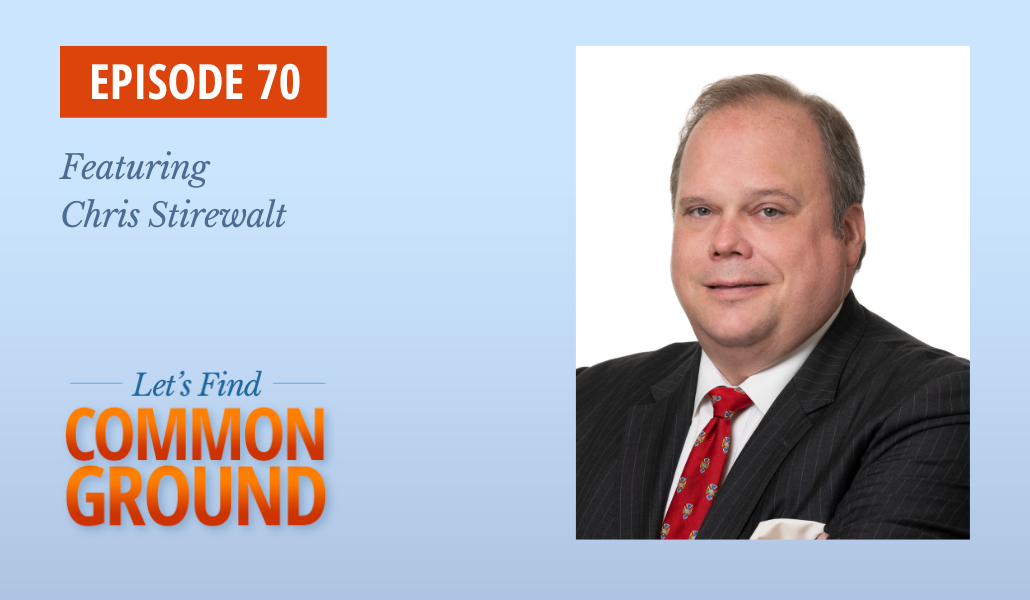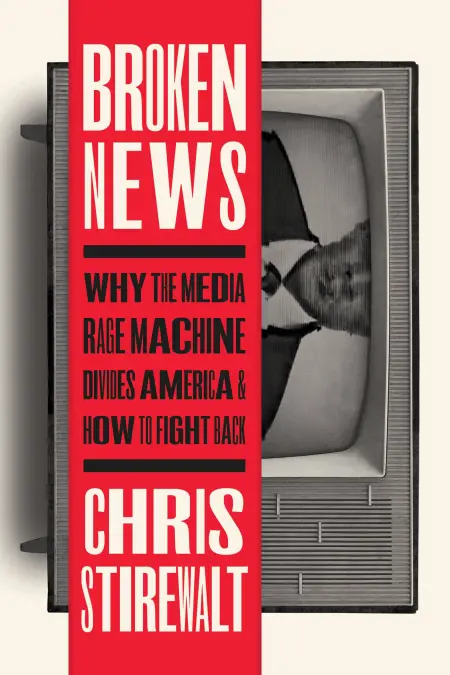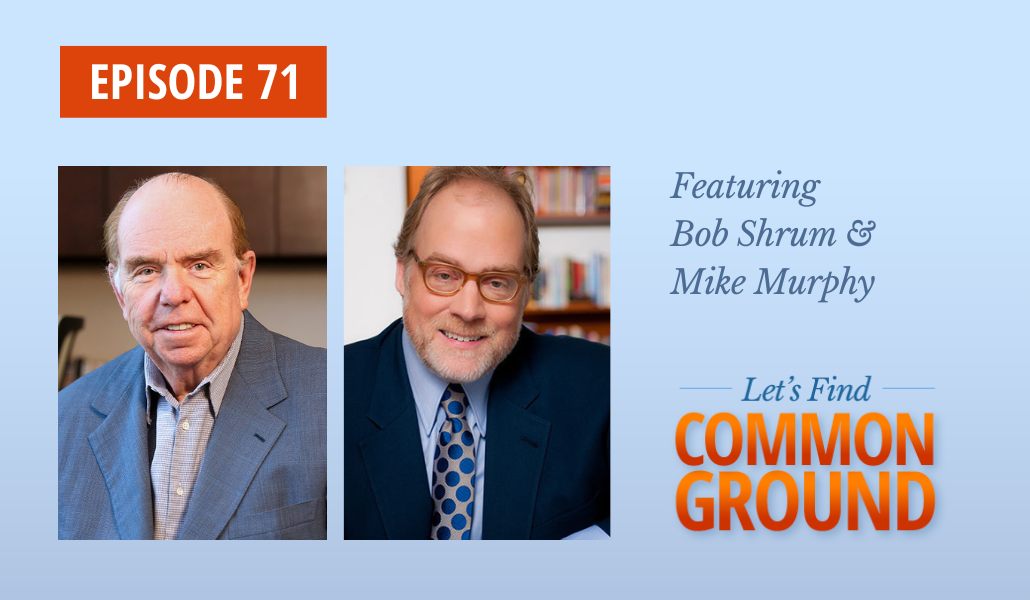
Subscribe to the Podcast





What lessons can we learn from the 2022 midterms? Hear from two experienced political strategists.
Why did the widely forecast “red wave” election turn into a ripple? What are the prospects for finding common ground in Congress where both houses will have razor-thin majorities? What will the midterm election results mean for the future of our Republic?
In this special podcast episode of Let’s Find Common Ground, releasing just days after several key races were determined, two of the most experienced political strategists of recent decades share their insights. Democrat Bob Shrum and Republican Mike Murphy serve as co-directors of The Center for the Political Future at the University of Southern California. Among other topics, we explore their relationship as good friends who are on opposite sides of the political divide.
Mike Murphy is one of the Republican Party’s most successful political media consultants, having handled strategy and advertising for more than two dozen successful gubernatorial and senatorial campaigns. Bob Shrum was once described as “the most sought-after consultant in the Democratic Party,” by The Atlantic Monthly. He was the strategist in over 25 winning U.S. Senate campaigns, eight successful races for governor, and numerous campaigns for Congress and statewide offices.
Read the Episode Transcript
Ep 71 – Special Episode: Lessons From The 2022 Midterm Elections
Bob Shrum
Robert Shrum is the Director of the Center for the Political Future and the Carmen H. and Louis Warschaw Chair in Practical Politics at USC Dornsife. A legendary political strategist, he was once described as “the most sought-after consultant in the Democratic Party,” by The Atlantic Monthly. He was a speechwriter for Senator George McGovern in the 1972 presidential campaign and for Senator Edward Kennedy in the 1980 presidential campaign. He served as the Senator’s Press Secretary in the early 1980s and as a political consultant and strategist in his subsequent Senate campaigns. He was also the strategist in over 25 other winning U.S. Senate campaigns, eight successful campaigns for governor, successful campaigns for mayors in major American cities, and numerous campaigns for Congress and other statewide offices. His clients included Joe Biden, John Glenn, Barbara Mikulski, David Dinkins, and Tom Bradley – and John Kerry and Al Gore in their presidential races. Overseas his clients included Israeli Prime Minister Ehud Barak, the British Labour Party, the Prime Minister of Ireland, and the Presidents of Colombia and Bolivia.
In 2005 he shifted his attention to the academic world. Professor Shrum teaches several classes at USC on domestic policy, applied politics, and elections. He had previously taught at New York University, was a Silliman Fellow at Yale, and Kennedy Fellow at the Institute of Politics at Harvard. He is a member of the Board of Directors of the Edward M Kennedy Institute for the United States Senate.
Shrum’s book, No Excuse: Concessions of a Serial Campaigner was a national bestseller published in June 2007 by Simon and Schuster. As a journalist, Shrum’s work has appeared in the New York Times, New York Magazine, The Los Angeles Times, Time, Newsweek, and The Huffington Post. He has been a columnist for Slate, The Week, and the Daily Beast. He has written for commercial television, including “The Emmy Awards,” “The American Film Institute Life Achievement Awards,” and the Emmy and Peabody Award-winning “Kennedy Center Honors: A Celebration of the Performing Arts,” for which he received a Writers Guild of America award.
He is a graduate of Georgetown University and Harvard Law School. While at Georgetown, Shrum was named top speaker at the 1965 Collegiate National Debate Tournament. An award named after Shrum is now presented annually to the top speaker at the National Speech and Debate Tournament for high school students. Shrum was born in Connellsville, Pennsylvania and raised in Culver City, California. He now lives in Los Angeles, California with his wife, the writer and activist Marylouise Oates, and their dog Cody.
In 2015 Shrum received the Lifetime Achievement Award from the American Association of Political Consultants (AAPC) and was inducted into its Hall of Fame.
Mike Murphy
Mike Murphy is the Co-Director of the Center for the Political Future at USC. Murphy is one of the Republican Party’s most successful political media consultants, having handled strategy and advertising for more than 26 successful gubernatorial and senatorial campaigns. His record in helping Republicans win Democratic states is unmatched by any other GOP consultant. Murphy has been called a “media master” by Fortune magazine, the GOP’s “hottest media consultant” by Newsweek, and the leader of a “new breed” of campaign consultants by Congressional Quarterly. He is a widely known political pundit, appearing frequently on NBC, CNN, and NPR. Previously, he served as a regular on the Meet the Press political roundtable and wrote the “Murphy’s Law” column for TIME Magazine.
Murphy served as senior strategist for both John McCain’s first campaign for President in 2000 and Arnold Schwarzenegger’s historic election as Governor of California. Murphy has worked on successful campaigns for many GOP Governors and Senators including Jeb Bush, Mitt Romney, Terry Branstad, Lamar Alexander, Jeff Sessions, Slade Gorton, Dirk Kempthorne, Tommy Thompson and John Engler. In the 2016 primary season, Murphy served as the chief strategist to the Right to Rise PAC, which supported Jeb Bush’s candidacy. In 2020 Murphy joined former aides to George W. Bush and John McCain to endorse Joe Biden for president. He has advised political leaders in six foreign countries, too. A partner in the Washington, DC based Revolution Agency, Murphy also advises several Fortune 500 corporations and several of America’s largest trade associations.
Murphy has partnered with fellow campaign veteran David Axelrod to discuss American politics twice a week on their podcast, Hacks on Tap. Murphy previously hosted Radio Free GOP where he facilitated insider discussions about political campaigns with campaign veterans from both parties.
He was born in Detroit, Michigan in 1962 and attended the Edmund Walsh School of Foreign Service at Georgetown University. Murphy also served as a Senior Fellow at the Harvard Kennedy School’s Belfer Center for Science and International Affairs and is on the Board of Advisors for the Institute of Politics at the University of Chicago. In addition to his consulting practice, Murphy also works as a writer/producer in the entertainment industry. He and his wife Tiffany now live in Los Angeles, California where they have been based since 2003.
Want to hear more? Check out our podcast page to see all the discussions!
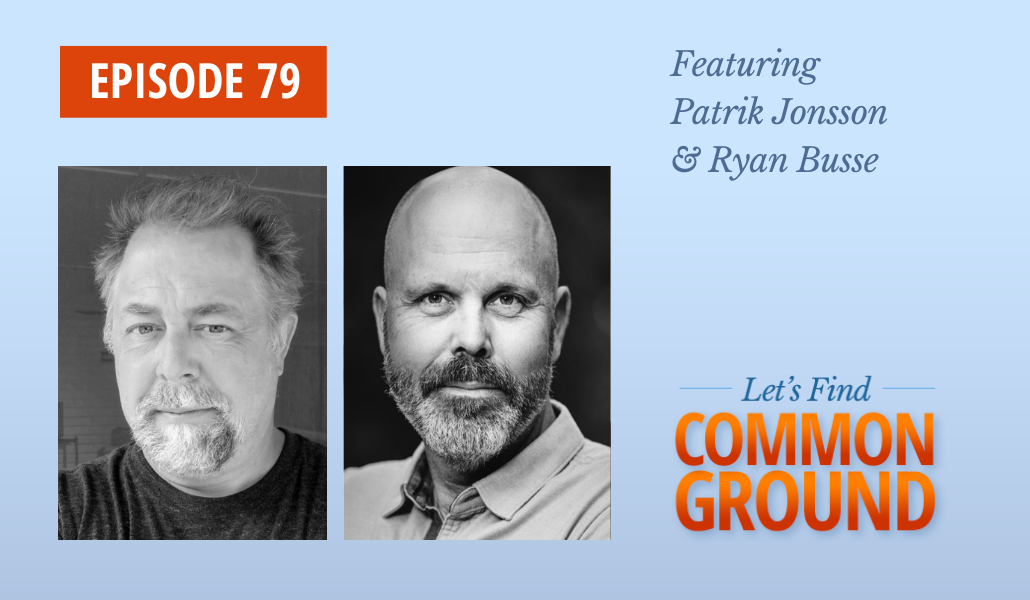
 and was nominated multiple times by industry colleagues for the Shooting Industry Person of The Year Award.
and was nominated multiple times by industry colleagues for the Shooting Industry Person of The Year Award.
